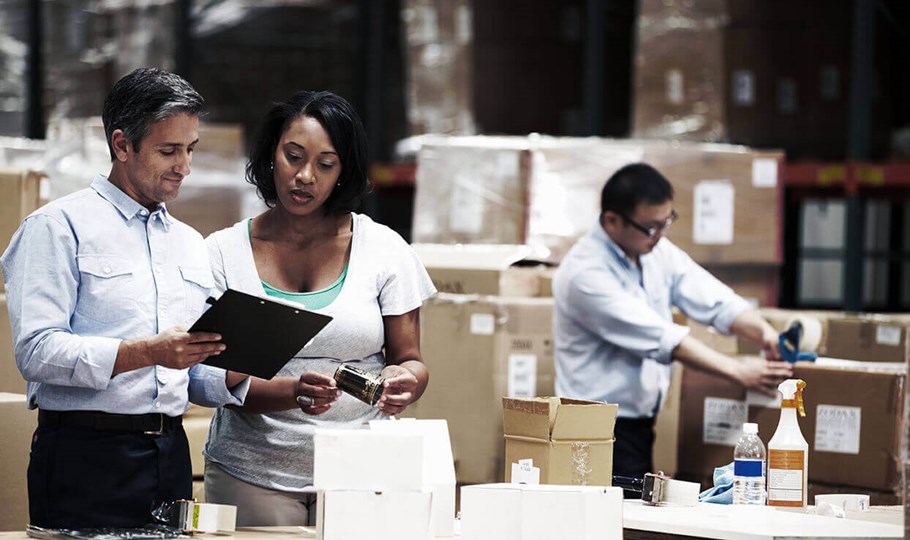
HMRC is asking traders like you to start assessing the materials within your supply chain, ahead of the Plastic Packaging Tax, coming into force on 1 April 2022.
The government body warns that failure to get your records in order and get registered could lead to future fines or more serious penalties.
TAX FACTS
From April, if you are putting plastic packaging out into the UK marketplace, you must register with the HMRC portal to pay the Plastic Packaging Tax. The tax is applicable on any plastic packaging component made of less than 30% recycled material; for every tonne of such plastic used there is a £200 fee.
FUTURE PREDICTIONS
By introducing the tax, UK Government aims to drive up demand for recycled plastic, increasing collection and recycling, while decreasing landfill or incineration.
As UK recycling capabilities improve, the Treasury Consultation has said the (30%) material threshold could increase, requiring a higher percentage of recycled plastic used in packaging to merit tax exemption.
THE GOAL
Increasing the use of recycled plastic will help toward the government’s Net Zero Strategy (which aims by 2035 to have reached a 78% reduction in greenhouse gas emissions, compared to the UK’s 1990 rate of emissions).

THOSE AFFECTED
While commendable, the tax is projected to impact around 20,000 businesses in total, both directly hitting those liable to pay it, and indirectly affecting those who will absorb the cost.
DIRECTLY IMPACTED PARTIES
- Importers of raw materials who are converting this into plastic packaging
- Importers of goods in plastic packaging
- Importers of empty plastic packaging
INDIRECTLY IMPACTED PARTIES
- Businesses selling or handling products with plastic packaging
- Consumers
- Waste management companies
As with any rule, there are exemptions on the parties and goods to which it applies.
EXEMPTIONS
- Businesses that handle less than 10 tonnes of plastic over a 12 month period
- Plastic used for the immediate packaging of licensed human medicine
- Plastic permanently recorded as set aside for a non-packaging use (such as white board film)
- Plastic used as transport packaging to import multiple goods safely into the UK (such as shipping containers)
- Plastic used in aircraft, ship and rail goods stores
- Plastic packaging made to be used for the long-term storage of goods (such as tool-boxes)
- Plastic packaging designed to be an integral part of the goods (such as ink cartridges)
- Plastic packaging which is primarily designed to be reused for the presentation of goods (such as shop fittings)

LIABLE PARTIES
Your supply chain likely will handle plastic packaging; however, you may be unsure at which point it becomes taxable and so who should be recording and paying the bills.
The HMRC has outlined that tax is payable at the point in which plastic packaging becomes a finished component. It will only become a ‘finished component’ after the last substantial modification is made (for instance once final manufacturing changes have set the shape, thickness weight or structure of the packaging).
If you are bringing plastic packaging into the UK marketplace (through creation or import) as a finished component, then you must record it and pay the tax.
SECONDARY OR JOINT AND SEVERAL LIABILITY
What’s more, if the liable party in your supply chain has been misstating or fraudulently evading the Plastic Packaging Tax, then you too may be punished under Secondary Liability and Joint and Several Liability notices within the law.
MISSTATEMENT AND TAX EVAISION REPERCUSSIONS
Penalties for misstatement and fraudulent evasion vary, with fines of up to £20,000 and sentences of anywhere between one and seven years for the most serious convictions.
To crack down on companies who break the law, HMRC will have the power to audit businesses that have reported suspicious Plastic Packaging Tax returns.
TAX RETURNS
It is important to now start to prepare your records for quarterly Plastic Packaging Tax Returns.
April – June 2022 will be the first active quarter for monitoring the tax, with July 2022 the deadline for reporting for that quarter.
A list of the information required within a Plastic Packaging Tax Return can be found on the UK Government website, ahead of the HMRC Plastic Packaging Tax portal going live in April.
INVOICING
As well as registering with the HMRC, keeping records and filing quarterly tax returns, some B2B traders will also have to update sales invoices.
Traders who supply plastic packaging components to business customers must, where applicable, include details of the Plastic Packaging Tax on the invoice.
It is not necessary for B2C traders to supply Plastic Packaging Tax information to their public customers.
PRICING
While only B2B businesses must update their customer’s invoices, all businesses must think about how to recoup the added costs of the Plastic Packaging Tax. For most this will mean passing the cost down the supply chain, by increasing product pricing.
However, the long-term aim of the tax is to encourage businesses to reduce their use of non-recycled plastic, through substitute materials or fewer shipments. These measures are already being considered by many businesses as part of their environmental strategy.
Advice on how to increase the efficiency of your shipments can be gained by consulting a logistics specialist.

